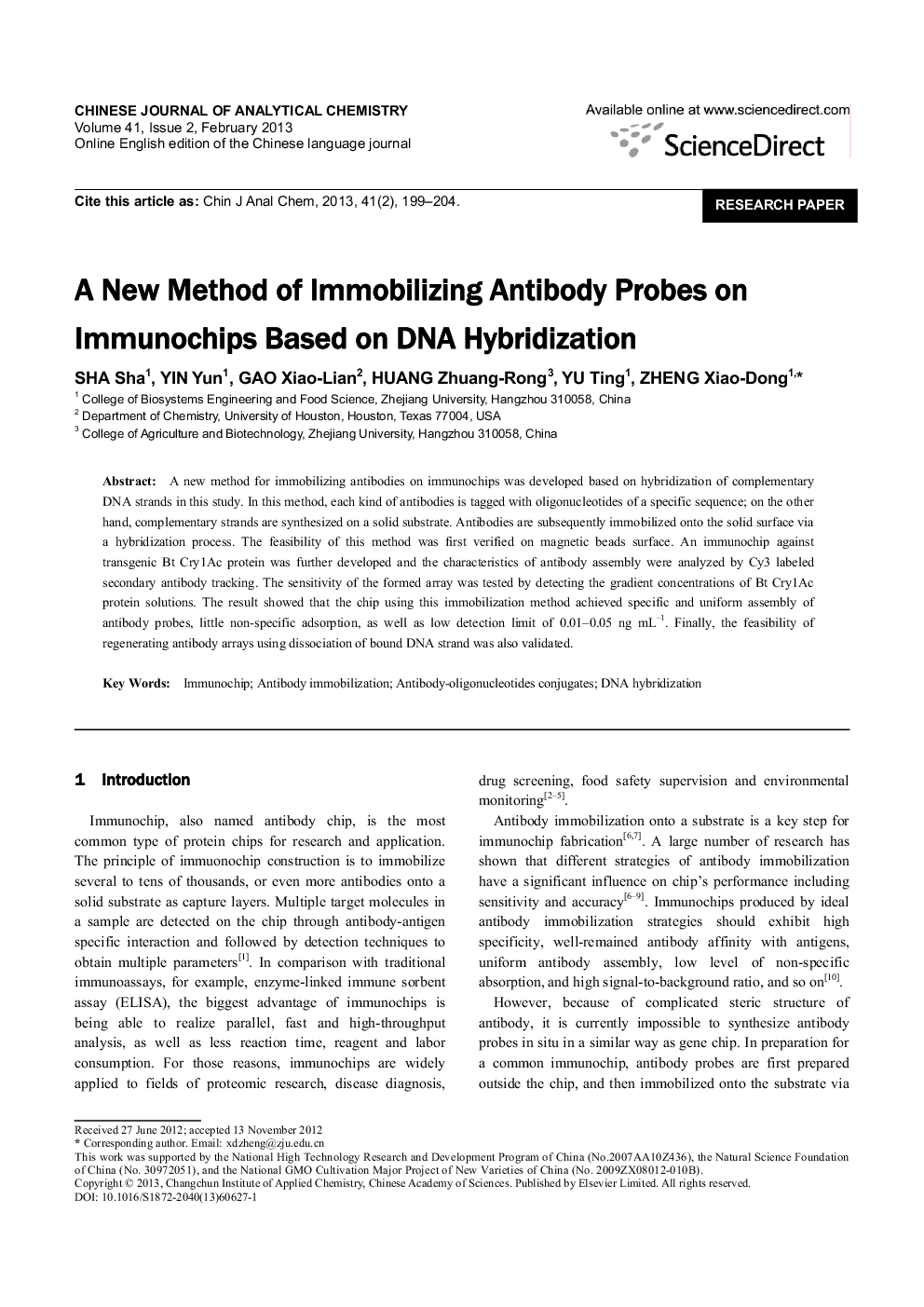| Article ID | Journal | Published Year | Pages | File Type |
|---|---|---|---|---|
| 1182901 | Chinese Journal of Analytical Chemistry | 2013 | 6 Pages |
A new method for immobilizing antibodies on immunochips was developed based on hybridization of complementary DNA strands in this study. In this method, each kind of antibodies is tagged with oligonucleotides of a specific sequence; on the other hand, complementary strands are synthesized on a solid substrate. Antibodies are subsequently immobilized onto the solid surface via a hybridization process. The feasibility of this method was first verified on magnetic beads surface. An immunochip against transgenic Bt Cry1Ac protein was further developed and the characteristics of antibody assembly were analyzed by Cy3 labeled secondary antibody tracking. The sensitivity of the formed array was tested by detecting the gradient concentrations of Bt Cry1Ac protein solutions. The result showed that the chip using this immobilization method achieved specific and uniform assembly of antibody probes, little non-specific adsorption, as well as low detection limit of 0.01–0.05 ng mL−1. Finally, the feasibility of regenerating antibody arrays using dissociation of bound DNA strand was also validated.
Graphical abstractA novel method of immobilizing antibody probes on immunochips was developed based on DNA hybridization. The antibodies are tagged with specific DNA strands and assembled through hybridization with complementary DNA strands on a substrate. A formed antibody array reverses to DNA array through dissociation of bound strands and a novel antibody array is able to be regenerated subsequently.
